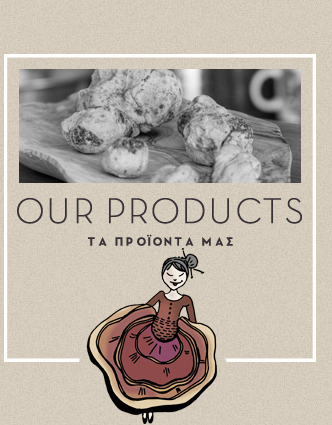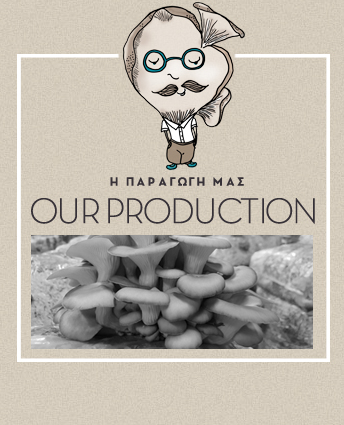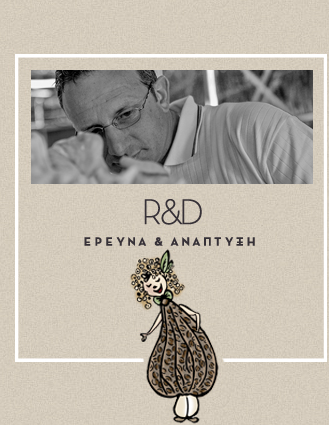R&D
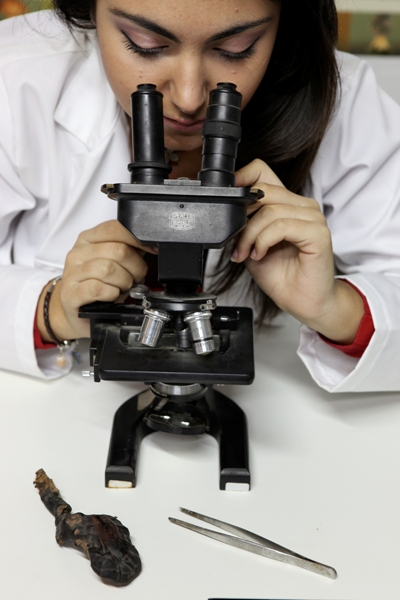
One of our company’s main objectives is to develop and introduce new products considerably different from those already in production. Our target is to demonstrate mushrooms’ nutritional and bioactive ingredients. That is achieved through constant research, by elaborating new production procedures and by modernizing our production and processing lines. “Dirfis Mushrooms” is the only company in Greece that runs a program of spawn production in collaboration with Agricultural University of Athens. The company also develops in cooperation with scientists from the University of Hohenheim an innovative solar drying technology for the natural enrichment of mushrooms with vitamin D.
OUR NEW RESEARCH PROGRAMS 2018-2021
TITLE
Valorization of agricultural by- products as new substrates for the production of Pleurotus mushrooms with high nutritional value – Development and clinical evaluation of an innovative polyvalent functional food with enhanced content in bioactive compounds (vitamin D and antioxidants).
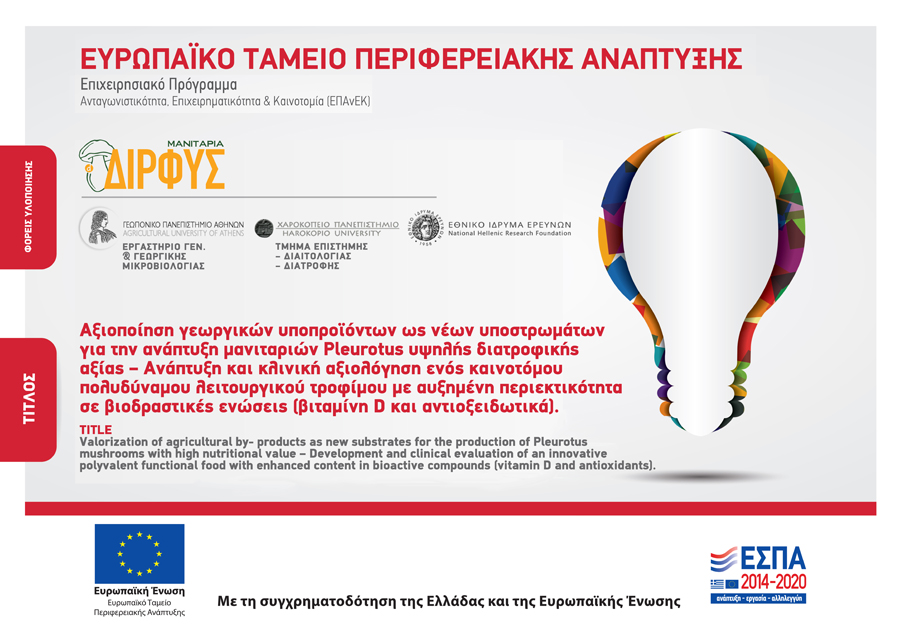
Research programs
1. FP66 2003-2008
Measure 4.5 of Business Competitiveness Program (EΠΑΝ in Greek) act: coordinated Program
«Natural environment and Sustainable Development»
Work code FP66. . WORK BENEFICIARY.
30/10/2003, 48 months
«Biological Treatment and Exploitation of Oil-industry Liquid Wastes: Mechanisms and Integrated Applications»
Within the context of 3rd Community Support Framework, the Ministry of Development (General Secretariat for Research & Technology - ΓΓET in Greek) proclaims a Program within Measure 4.5 «Joint Ventures for Research and Technological Development in National Priority fields», entitled «Natural Environment and Sustainable Development».
Within that specific Action, National Agricultural Research Foundation (EΘΙΑΓΕ in Greek) and Food Industrial Research and Technological Development Company (ETAT SA in Greek), in collaboration with the Universities of Athens, Patra, Crete and the Agricultural University of Athens, prepare the submission of a proposal concerning biodegradation and exploitation of oil-industry wastewater.
The above proposal includes a set of secondary actions aiming, among others, at the following:
- Defining the physical-chemical qualities of all by-products in oil-industry and also defining the pollution load of olive-mill wastes and the environmental impact of applying them onto liquid and land recipients.
- Isolation, identification and comparative evaluation of micro-organisms developed inside olive-mill wastewater, which can degrade the main chemical compounds responsible for pollution.
- Studying the biochemical mechanisms for the degradation of olive-mill liquid wastes and developing procedures of bio-treatment aiming at detoxifying them and at producing microbial biomass.
- Developing systems concerning the application of olive-mill wastes (with or without pre-treatment) onto agricultural land, and especially on olive-cultures and horticultures.
- Developing a methodology for the treatment of olive-mill by-products (olive leaves, olive kernel, olive kernel wood, etc.) and their co-exploitation along with olive mill wastewater, aiming at producing organic soil improvement products, which shall complement or supplement conventional fertilizers, while at the same time they shall perform a retentive action as to the development of soil pathogenic elements.
- Genetically improving selected micro-organisms in order to detoxify olive-mill wastewater, thus producing added value products (e.g. mushrooms, animal feed, pharmaceutical compounds, enzymes, etc.).
2. 8NEW_B_2012
Breeding of edible mushrooms of the genus Pleurotus and development of
a mushroom-spawn production unit
15/9/2010, 30months
Solar-dried mushrooms – Naturally enriched with vitamin D
Research has shown that many people do not get a sufficient amount of Vitamin D in their diet. A lack of Vitamin D can lead to chronic pain, weak bones, or infections if the deficiency is not corrected. Higher intake of Vitamin D may also reduce the risk of osteoporosis. Thus Vitamin D is an essential vitamin in our daily diet, allowing the body to absorb calcium to build and maintain strong bones.
Dirfis Mushrooms in close collaboration with scientists from the University of Hohenheim in Stuttgart (Germany) developed dried mushroom products, naturally-enriched with vitamin D in a sustainable way using an innovative solar drying technology.
In the framework of the TRAFOON Project – “Traditional Food Network to improve the transfer of knowledge for innovation” and in close collaboration with Dr. Dimitrios Argyropoulos, Dirfis Mushrooms successfully applied an energy-efficient, low-cost solar drying technology in order to develop dried mushroom products, rich in vitamin D, improved quality and extended shelf life.
The end product was presented at the joint closing TRADEIT/TRAFOON conference titled – “Open to Innovation: Networks for the sustainability of Traditional Food Sector in Europe” this October in Brussels and it represents a successful Open Innovation case.


























